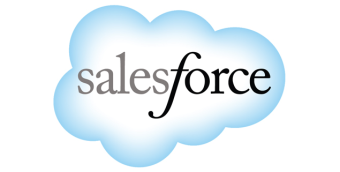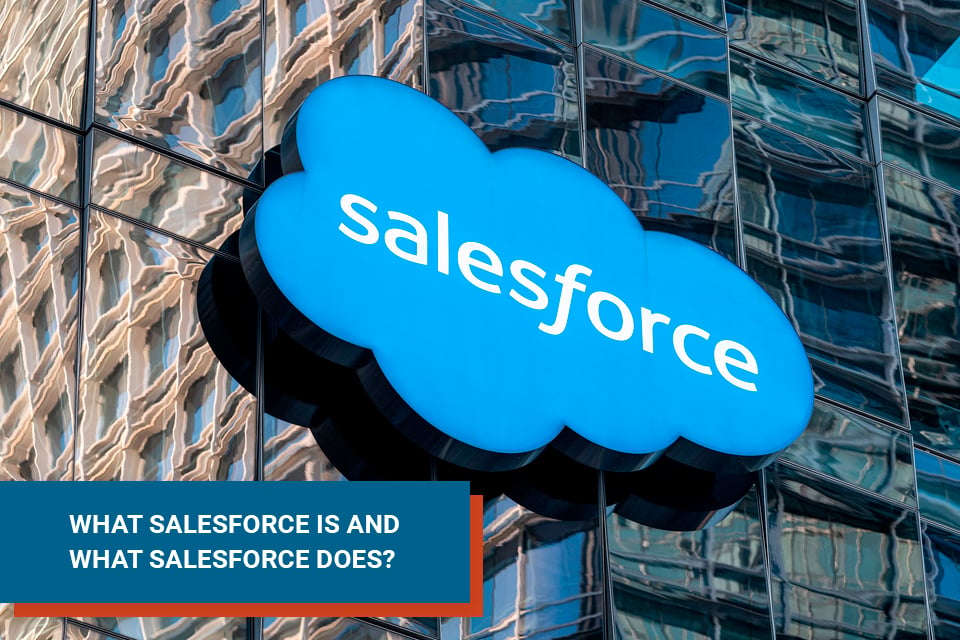Cloud Computing for Business: An Introduction
 Igor Krasnykh
·
5 minute read
Igor Krasnykh
·
5 minute read

Cloud providers specialize in offering online assets such as servers, storage, databases, networking, software, analytics and intelligence. Because these resources are made available through the Internet (a.k.a. the cloud), the process is known as cloud computing. There are many reasons businesses leverage cloud computing companies. It saves money, as the cost of purchasing the necessary infrastructure (hardware, software, servers, etc.) is eliminated. Subscribing to a cloud provider also saves time because digital services are available on-demand through a network.
3 major types of cloud computing
There are a few cloud computing options to choose from, and each offers different functions as well as their own sets of pros and cons.
1. Infrastructure as a Service (IaaS)
IaaS providers deploy and manage pre-configured infrastructure (a.k.a. hardware) that facilitates the daily operations of a business. It allows businesses to rent storage, networks, servers, operating systems and virtual machines. While vendors manage these assets – typically on a pay-as-you-go basis – the user is responsible for installing and maintaining applications, data, runtime and middleware.
IaaS pros
- Costs are reduced because hardware and other network equipment do not have to be purchased or maintained.
- When seasonal fluctuations happen, IaaS provides on-demand scaling by automatically increasing and decreasing data storage needs.
- IaaS provides the flexibility for team members to easily access files and data offsite.
- The responsibility of hiring and managing an IT staff is eliminated because the IaaS provider is responsible for upgrading and maintaining the infrastructure.
- IaaS is known for its reliability.
- Virtualization capabilities allow multiple applications to run on a single computer system simultaneously.
Iaas cons
- If the IaaS provider’s system is compromised, the security of your company data could be at risk.
- System upgrades depend on the provider, so program inefficiency can result if they are not handled in a timely manner.
- Over-reliance on outside IT services can limit company control.
- When the IaaS provider experiences technical problems, access to important applications and data will be restricted.
Here are a few of the most popular IaaS providers:
- Amazon Web Services (AWS) offers IaaS through the Elastic Compute Cloud. With more than 165 fully featured services – including more than 40 exclusive ones – Amazon touts the large scope of capabilities it offers. According to the website:AWS provides services for a broad range of applications including compute, storage, databases, networking, analytics, machine learning and artificial intelligence (AI), Internet of Things (IoT), security and application development, deployment and management. Pricing for AWS depends on what services you are using.
- Azure is Microsoft’s public cloud that allows users to build, deploy and manage applications. It is known for its ease of use and can be used on all operating systems. Azure’s app services are based on a fee tier. Virtual machines start at $13 per month, and SQL database access starts at $4.00 per month.
- Rackspace Open Cloud has all the tools necessary for building scalable websites and applications. It features a user-friendly control panel and helpful customer service. Sessions start at $0.04 per hour and go up to $5.44 per hour. File storage starts at $0.10 per gigabyte per month. Block storage is $0.12 per gigabyte per month.
2. Software as a Service (SaaS)
SaaS offers an on-demand pay-per-use of application software. With SaaS, users do not need to install software on their computers. Rather, they gain access to a completed product through a service provider (think Netflix). All data is typically accessed through a web browser.
SaaS pros
- SaaS eliminates installs and runs applications on an outside server, so in-house space is saved. This saves companies from having to make expensive upgrades when more storage is needed.
- File-sharing is simplified, so multiple end-users can access them.
- Team members have remote access to web-based software, so they can fulfill deadlines from home or while traveling.
- SaaS offers instant software upgrades. In addition to providing the latest program versions, these updates often include important security patches.
SaaS cons
- When partnering with a SaaS provider, companies give up control of internal security measures. Data can be put at risk if the SaaS is compromised.
- While there are many benefits to updating software, there are some reasons why businesses might want to use an older version. With SaaS, businesses are subject to forced upgradeswhether they want them or not.
- While SaaS technology eliminates the need for desktop-version software, it is Internet-dependent. In the event of a web outage, productivity is stalled.
- Functionality can vary between web and desktop versions of software, so do not assume the features will be identical when making the switch to SaaS.
Here are a few of the most popular SaaS companies:
- Adobe has developed an extensive portfolio of cloud-based apps, including the experience cloud, analytics cloud and marketing cloud. One of the most well-known of the Adobe SaaS family is the Adobe Creative Cloud, which includes such programs as PhotoShop, InDesign, Illustrator and Premiere Pro. Pricing is dependent on which apps are used.
- Google’s digital assets – including Gmail, Google Docs and Google Drive -are among the most widely used SaaS products. Many of Google’s cloud-based services are free, but others come at a cost depending on what is used.

- Salesforce and other Customer Relationship Management systems are cloud-based. They help improve business relationships, increase customer retention and drive sales growth. In addition to managing sales and accounts, they are also used to manage a company’s interaction with current and potential customers.
Salesforce’s SaaS portfolio consists of its Sales Cloud, Marketing Cloud, Service Cloud and Commerce Cloud. Salesforce pricing depends on the needs and scale of each business. The Sales Cloud is the company’s most basic CRM system and starts at $25 per month. The most advanced version, Lightning Unlimited, is $300 per month. The Lightning framework enables app development features for those who do not have programming experience.
3. Hybrid Cloud

Of all cloud computing companies, hybrid dominates the market. A hybrid cloud provides an integrated mix of on-premise, private cloud and third-party public cloud services (often with multiple vendors). In this environment, workloads can move between clouds as computing needs and costs fluctuate.
Hybrid cloud pros
- Hybrid Cloud offers the flexibility to use services based on needs. For example, businesses can communicate with clients on the public cloud while keeping their files secure on a private network.
- With all of the moving parts working together, every aspect of business can run at maximum efficiency.
- The option to choose which IT aspects will be placed in the private vs. public cloud.
- Hybrid cloud offers more security than using the public cloud alone.
Hybrid cloud cons
- Because the hybrid cloud is so flexible, companies who use it have to keep track of multiple platforms and vendors.
- Because there are several players involved, more complex IT solutions may be required (increasing costs).
Here are a few of the most popular hybrid cloud companies:
- Dell EMC was born when Dell Inc. acquired EMC Corporation. It is a technology company that enables organizations to store, manage, protect and analyze data through its advanced infrastructure. It serves businesses of all sizes. Those who are interested in exploring Dell EMC can request a quote on its various products from Dell Technologies.
- IBM Smart Cloud offers cloud computing for building and using private, public and hybrid clouds. Customers can purchase self-service or managed service options. There are many types of services and pay tiers offered, and the cost depends on which model you choose.
- The RackConnect hybrid cloud, which was created by Rackspace, is a hybrid cloud vendor that facilitates the creation of multi-cloud environments and helps big brands such as Under Armour and Six Flags to maximize their data storage. The service costs $0.12 per gigabytes for the first 10,000 and fluctuates from there.
The role of artificial intelligence in the cloud
Artificial intelligence, or AI, is making its way into cloud computing. AI describes the ability of machines to take on an advanced, human-like intellect with the ability to reason, learn from past actions, discover meaning and generalize.
While AI’s capabilities are limited in the world of cloud computing right now, many developers see massive potential. Constant improvements are being pursued to streamline processes and automate tasks. The future of cloud computing will likely incorporate AI functionality with the ability to monitor, manage and analyze workflows to create better processes.
Research is the key to making the best choice
According to insights from Hosting Tribunal, cloud initiatives are expected to account for 70% of all tech spending by 2020. Hybrid cloud computing has an especially promising future, with more than 80 percent of enterprises choosing to run on a multi-cloud strategy. Cloud companies and the services they offer come in all shapes and sizes. When searching for the top cloud providers, the best solution for one business may not be what is recommended for another. Often, the solution is a mix of products. Because no two companies have the exact same needs, finding the cloud provider that is best suited for daily business operations is essential. With so many options on the market, sifting through the information can feel overwhelming. Using these eight criteria can help with determining the right fit. If you are interested in learning more about scalable infrastructure and automations for your business, contact PowerSync for a free evaluation.



